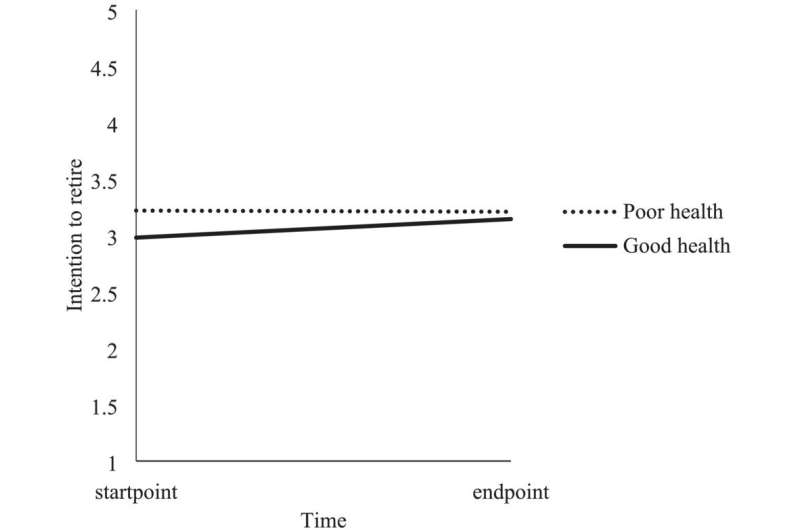This article has been reviewed according to Science X's editorial process and policies. Editors have highlighted the following attributes while ensuring the content's credibility:
fact-checked
trusted source
proofread
'Queue jumpers' who opt to retire early are catching companies off guard, finds Australian study

There's a new trend emerging in Australia that organizations need to heed—the "queue jumpers," defined as healthy workers aged 50+ who are preparing to abandon unsupportive organizations well before retirement age.
Around age 50, older people experience a growing awareness that 'life is finite' and an active, meaningful retirement may be preferential to staying in a job where they are not valued or receiving much support.
That's the consensus from a new national study published in the Journal of Organizational Behavior identifying a shift in retirement intentions among many healthy older adults who can support themselves financially without working.
Study co-author Professor Carol Kulik from the University of South Australia says despite increases in life expectancy and the official retirement age—67 years in Australia, the statistics* show that more healthy older people are leaving work earlier than in previous generations, and this has consequences for organizations.
Prof Kulik and colleagues from UniSA and the University of Melbourne analyzed survey responses from almost 500 workers aged 50 and older to find out why so many people were considering retirement.
"Retirement intentions are no longer linked to a fixed age, when pensions become available," Prof Kulik says.
"Changes in wealth and income, longer life spans and a desire among active older adults to make the best of their life before poor health sets in, are all reasons why people might choose retirement over work."
"In the past, health, wealth, workplace-related factors, and family variables were major predictors of retirement, but there is a new motivation that hasn't been previously considered—the passage of time."
"Growing awareness that life is finite sets in around 50 years when people start to reassess their priorities. They become less concerned with future work goals and more interested in the present. Relationships with family and friends also become more important."
But that awareness is greatest among healthy older workers who are not supported by their line managers. If workplaces do not value older employees, or discriminate against them, organizations risk losing the experienced, older workers who would be most productive, the study authors say.
If manager support is high and healthy older workers are valued, employees are less likely to consider retirement.
The researchers say a change in working arrangements due to the COVID-19 pandemic could also persuade older workers to press pause on their retirement plans.
"Hybrid office and working from home arrangements often suit older employees as they are removed from onsite discrimination that is prevalent in many workplaces. This also gives them a bridge into retirement, allowing them to reduce their hours but continue working," Prof Kulik says.
More information: Christina Cregan et al, When time is running out: A growth curve analysis of older workers' retirement intentions, Journal of Organizational Behavior (2023). DOI: 10.1002/job.2692
Provided by University of South Australia




















